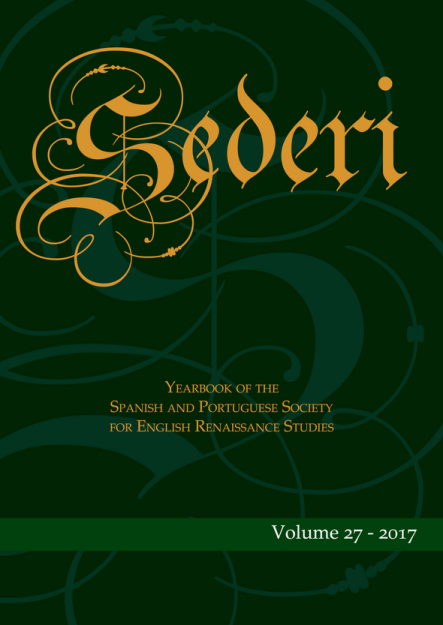Rupert Goold’s Macbeth (2010): Surveillance society and society of control
Abstract
This article deals with Rupert Goold’s film version of Macbeth (2010). Based on a stage production, this film is set in an unspecified Soviet country. I will analyze Goold’s creation of a stage-to-screen hybrid recording framed as a surveillance film. Relying on Michel Foucault’s and Gilles Deleuze’s works as well as various contributions made by Cultural Materialist and New Historicist critics, I intend to explore the power relations in this surveillance film. I will also examine how the surveillance film conventions deployed by Goold turn the narrative into a meta-filmic event. This allows the viewer to perceive surveillance as part of the subject matter of the story and as inseparable from its narrative structure. Eventually, this will serve to explore how surveillance entirely transforms the filmscape. What begins as a film set in a surveillance society ends up as an environment dominated by a society of control.
Downloads
Downloads
Issue
Section
License
The copyright holder of the published contributions is SEDERI.The hardcopy and an open-access version of the journal will be published simultaneously. The issues will be available online in the SEDERI website (http://www.sederi.org/yearbook/) and other repositories that have signed an agreement with SEDERI.
The authors who publish with this journal agree to the following terms:
a) SEDERI retains copyright of the essay.
b) If the author wishes to republish or rewrite the essay for another journal, or include the essay published in SEDERI in their personal repositories, or in any other way, they should contact the editors to obtain permission to do so. This will entail citing SEDERI as the original source and sending the editors a copy of the new version, or the link to the website, in case of online publishing.
The author(s) hereby warrant(s) that:
a) The essay submitted for publication is an original creation and does not infringe any copyright or property right of another journal, author or publisher.
b) The essay submitted for publication has not been previously published, whole or in part, and is not being considered for publication elsewhere.
c) Written permission has been obtained for any material from other sources included in the essay submitted for publication.




